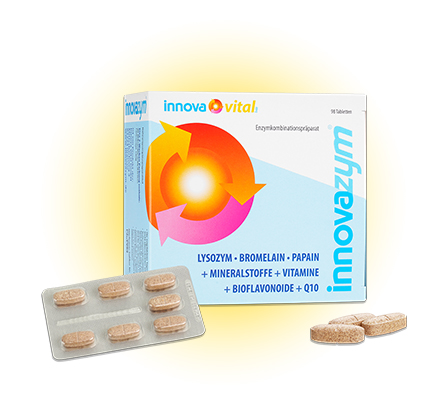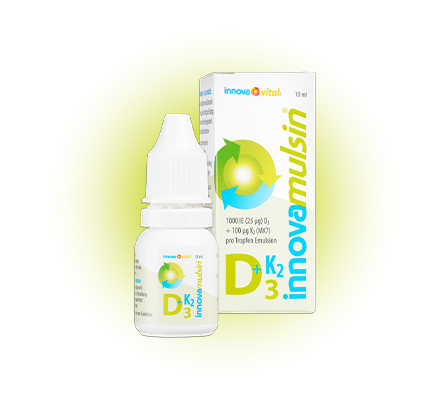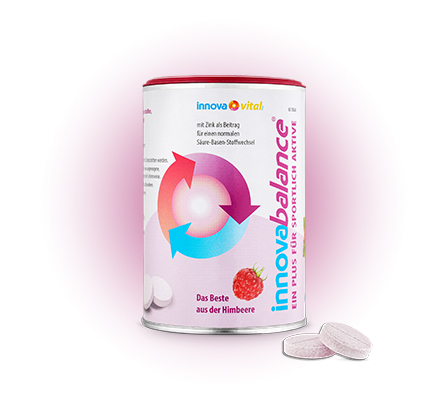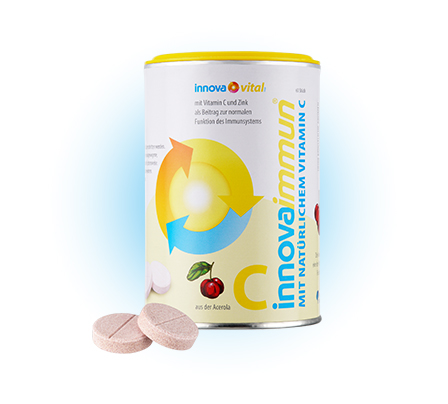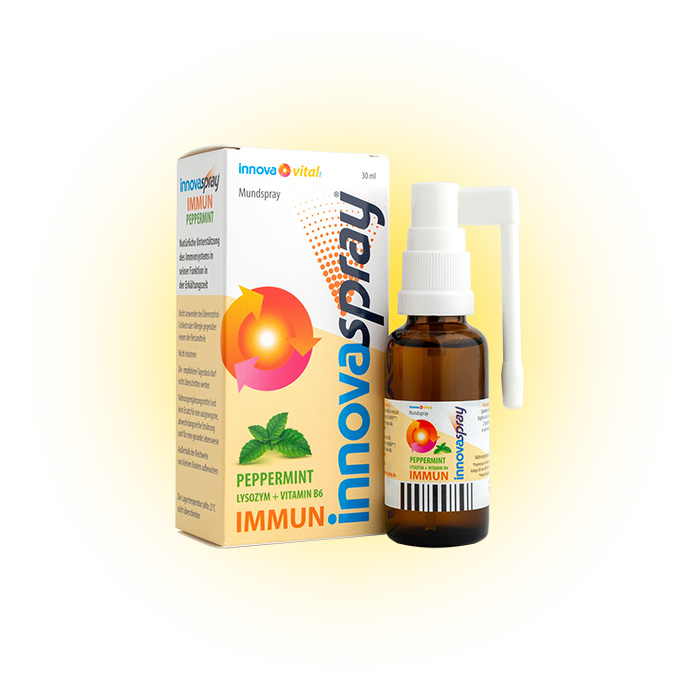Vital Magazine
| innovaspray
Two natural components to support the immune system
Lysozyme, also known as muramidase, is an important component of the human congenital immune system. It was discovered in 1922 by Alexander Fleming. This enzyme belongs to the group of hydrolases and its antibacterial effect (degrading of bacterial cell walls) contributes to the functioning of the immune system. Lysozyme is found in almost all human bodily fluids such as e.g. saliva, sweat, nasal secretion and tear fluid. In addition to this, it can also be found in the egg white of hen’s eggs protecting the egg from pathogens permeating it.
Vitamin B6 (also called pyridoxine) is a water-soluble vitamin. It is necessary for many metabolic processes in the human body. It particularly influences the immune defence, the formation of blood cells and the nervous system. Additionally, vitamin B6 is involved in the formation of important neurotransmitters such as serotonin, the happy chemical.

The immune system under stress
Our body is exposed on a daily basis but particularly in the autumn and winter to the most varied of strains such as e.g. viruses and bacteria. The immune system has to work flat out and effectively to protect the organism from these pathogens and thus fend off colds and lengthy influenza illnesses

